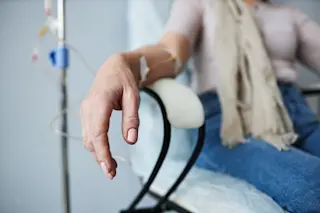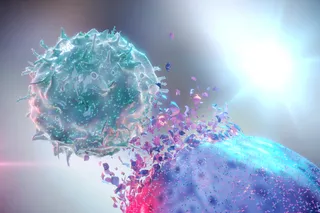Compost is known for helping the environment by putting waste to good use, but in an unexpected way, it may also give rise to more effective chemotherapy treatments. According to new research, it turns out that bacteria found in compost harbor a type of protein that can be used for improved drug delivery.
A recent study published in the journal Angewandte Chemie International Edition details a promising method in which protein cages can be modified to transport drugs. Having shown success during in vitro tests, this process could soon allow for enhanced drug delivery within the body and reduce the side effects of chemotherapy drugs.
Proteins are among the most important components in our bodies, performing a repertoire of tasks that keep us alive and healthy; mainly working in cells, they drive metabolism, support the immune system, and strengthen muscles. Variation in amino acids — the building blocks of proteins ...















